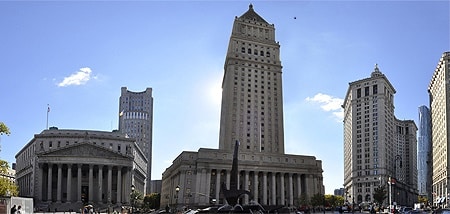Interlocutory Appeals and State Sponsors of Terrorism
September 25, 2024

In a decision only lawyers could love, the Second Circuit held on September 3, 2024, that it lacked appellate jurisdiction over an interlocutory appeal by the Republic of Sudan brought in a multidistrict litigation (MDL) arising out of the terrorist attacks of September 11, 2001. The key issue is when the state-sponsored terrorism exception to the Foreign Sovereign Immunities Act limits the availability of interlocutory appeals.
Background
Between 2002 and 2004, five sets of plaintiffs sued the Republic of Sudan for injuries arising out of the September 11 terrorist attacks. Sudan declined to participate, so several default judgments were entered against it. But in 2020, Sudan appeared in the litigation. The district court vacated the default judgments and litigation commenced, eventually becoming an MDL in the Southern District of New York.
In August of last year, the district court denied Sudan’s motion to dismiss. Of relevance here, the court held that it possessed subject-matter jurisdiction under two exceptions to the Foreign Sovereign Immunities Act (FSIA). First, the court had jurisdiction under the state-sponsored terrorism exception, 28 U.S.C. § 1605A, including its repealed predecessor statute, § 1605(a)(7). Second, the court had jurisdiction under the Justice Against Sponsors of Terrorism Act (“JASTA”), 28 U.S.C. § 1605B. The court also held that plaintiffs adequately pleaded most of their claims, including under 1605A.
Appeal
Sudan appealed the finding of subject-matter jurisdiction and the denial of immunity, but specifically challenged only the findings under § 1605(a)(7) and JASTA. Why these provisions, and not 1605A? Immunity determinations under the FSIA, like other immunity decisions, may be challenged in interlocutory appeals under the “collateral order doctrine,” without any intervention from the district court. But 1605A includes an “appellate bar” (Section 1605A(f)), which provides:
In an action brought under this section, appeals from orders not conclusively ending the litigation may only be taken pursuant to section 1292(b) of this title.
Section 1292(b), in turn, requires certification by the district court of an interlocutory appeal. So while foreign sovereigns dissatisfied with most immunity determinations under the FSIA can file interlocutory appeals on their own, for Section 1605A determinations they must seek out the approval of the district court.
So far, so good, but what about cases that implicate both 1605A and other aspects of the FSIA? What if the foreign sovereign—as Sudan did in this case—disclaims any appeal based on 1605A but wishes to challenge a district court’s immunity determination based on other exceptions?
Taking the decision out of order, the Second Circuit offered a clear and simple interpretation of 1605A(f). For any case “brought under” 1605A, the court held that the appellate bar applies to interlocutory appeals of any orders—not just orders about 1605A. For any orders in such cases, section 1292(b) and district court certification was the only option available. The Second Circuit added that this interpretation seemed consistent with Congress’s purpose in enacting 1605A—that is, “to give American citizens an important weapon against outlaw states that consider terrorism a legitimate instrument of achieving their foreign policy goals” (cleaned up).
The Second Circuit also explained what it took for a case to be “brought under” 1605A. The review is not searching:
We do not independently consider whether Plaintiffs’ § 1605A claims are timely. Nor do we review the claims for plausibility. Instead, we simply assure ourselves of the existence of § 1605A claims in Plaintiffs’ actions and, having done so, defer to the district court as to their viability pending appeal from the final judgment.
Here, the district court concluded that it had jurisdiction under 1605A and rejected Sudan’s claims that 1605A jurisdiction was time-barred. Based on these conclusions, the court of appeals had little trouble concluding that this case was “brought under” 1605A and therefore could not appeal under the collateral order doctrine.
Conclusion
The Second Circuit’s interpretation of 1605A(f) seems right in a case like this one. But the presence of a special rule for interlocutory appeals could be an invitation for gamesmanship.
In BP PLC v. Mayor and City Council of Baltimore, the Supreme Court addressed a special rule permitting appeals of decision to remand removed cases to state court. Typically remand decisions are not appealable, but Congress created a carve out for federal officer removals. In BP, the Court held that if the defendant invoked federal officer removal, then it could appeal a remand decision and raise any objections to remand. In dissent, Justice Sotomayor raised alarm bells: “Unfortunately, I fear today’s decision will reward defendants for raising strained theories of [federal officer removal] by allowing them to circumvent the bar on appellate review entirely.”
Could there be a similar (though opposite) effect in FSIA cases? Might a plaintiff seeking to avoid interlocutory review include “strained theories” of Section 1605A jurisdiction? The rule announced in this case is not as rigid as in BP—a defendant facing a “strained theory” of 1605A liability can still invoke section 1292(b), so the effect of this stratagem will not be automatic. And the scope of Section 1605A is narrow, so perhaps the pool of potential cases is small. But only time will tell whether this rule will affect how FSIA cases are pleaded and appealed.